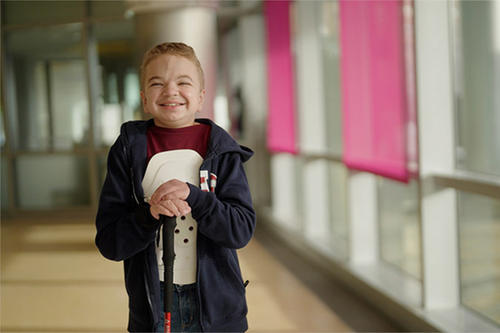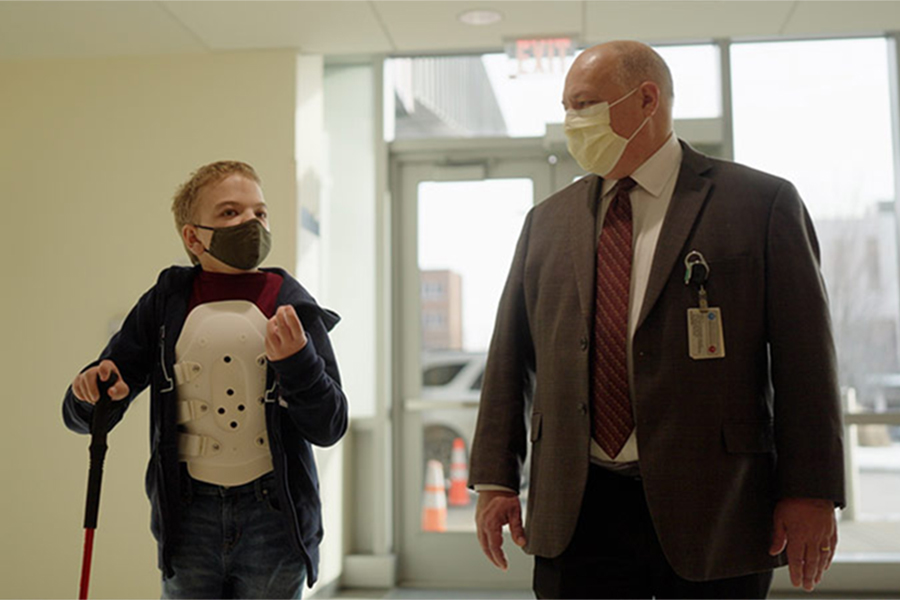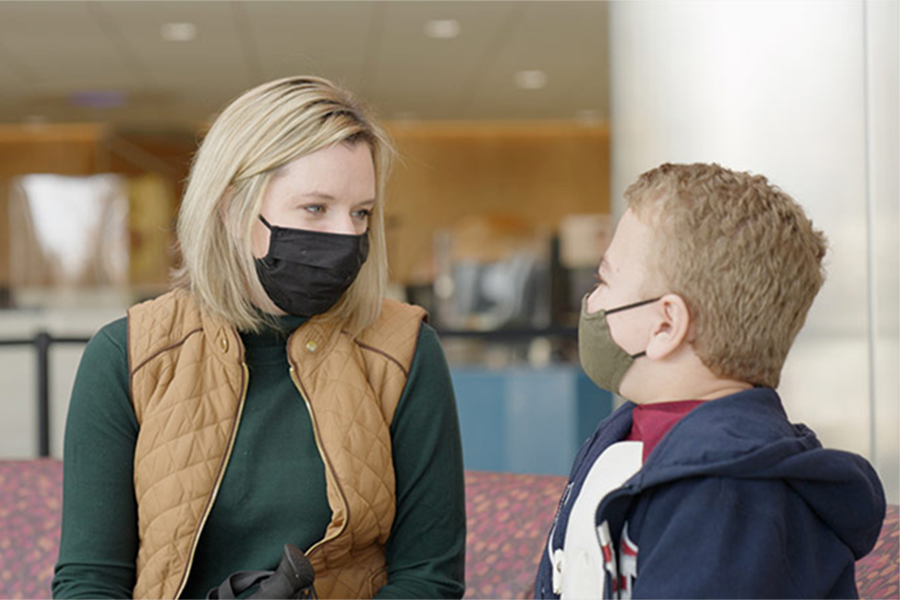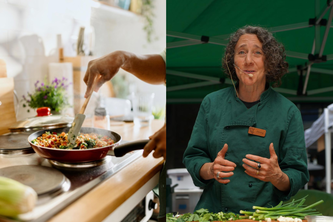
Having one child with a rare disease is challenging enough. Brooke and Mich Thomas have three.
But then, they might have something even rarer: People who can’t help but rally around such an upbeat family.
Include Paul Orchard, a pediatrician and professor at the University of Minnesota Medical School, as a fan.
He did the critical bone marrow transplants on Zach, 12, Amelia, 10, and Luke, 5, and continues to coordinate the team of U of M specialists who provide ongoing care for them.
“We do nothing without running it by him,” says Brooke. Adds Orchard, “I just love hearing the kids’ ideas about what they want to do with their future.”
There are an estimated 7,000 rare diseases and counting, affecting as many as 30 million people in the United States alone.
These families need resources, research, advocacy, awareness and, above all, places like M Health Fairview Masonic Children’s Hospital—which is recognized as a Rare Disease Center of Excellence.
It’s why the Thomases, an Alabama family, travel so far, so often, even during the darkest and coldest days of winter.
“Back home, you might have one person who’s read a paragraph about your rare disease,” says Brooke. “Here, everybody’s an expert.”
In fact, says Orchard, the U of M hosts one of the largest transplant centers in the world for rare diseases.
Zach Thomas was just one when he was diagnosed with Hurler Syndrome, a genetic disease found in about one in 100,000 people.
Children with the condition lack an enzyme to break down certain complex molecules. Without it, these molecules build up in the body’s cells, causing progressive damage to the brain, heart, and other organs. Against the odds, Zach’s little sister and brother were diagnosed with the disease, as well.
Looking back, Brooke admits that it took her a while to accept how her family’s life had so drastically and suddenly changed.
But with the help of friends and family, she realized she didn’t want sadness to get in the way of precious time with her kids.
Because of their experience, she and Zach have become advocates for other families who encounter rare diseases, showing the newly diagnosed that their lives can be every bit as rich as hers. They’ve also lobbied policy makers for newborn screening, critical to early intervention and more effective treatment.
“Our daughter’s middle name is Hope because that’s what we choose for ourselves and for her and for all of our kids,” says Brooke.
One of the promising areas of treatment, bone marrow transplant, provides the children with the missing enzyme.
Still, there is an ongoing risk of organ damage with the disease, which is why the family regularly comes back to the U of M for check-ups and, if needed, treatment.
Zach, for instance, has some orthopedic issues, and was just in town for a spinal fusion.
His frequent and, sometimes, lengthy visits, have made him a big fan of Ronald McDonald House and the U of M, including Goldy the Gopher.
“We’re Minnesotans at heart,” says Brooke.
This story was adapted from the U of M Medical School.
- Categories:
- Health
- Health conditions






